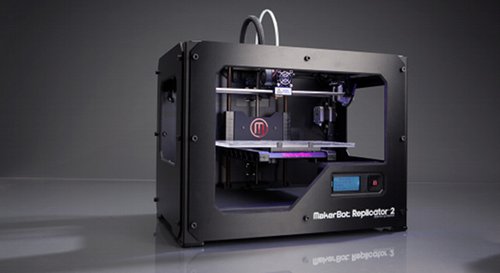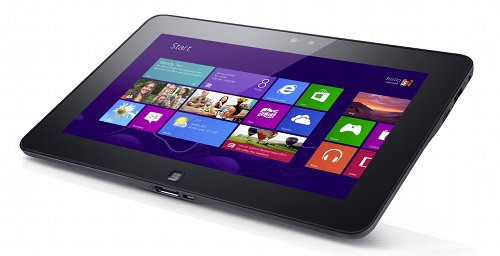Blog posts tagged 2013
Just before you head off for Christmas...

As far as technology is concerned, 2013 has been a pretty busy year. Barely a week has passed without a major tech story hitting the headlines, demonstrating how technology and the internet have become central to our lives.
Technology is key to business success too, of course, and so we’ve done our best to keep you updated with important stories and developments throughout the year.
Some of these have been pretty cutting-edge, like the launch of Google Glass and the emergence of a fingerprint reader on Apple’s latest iPhone.
But looking back through our visitor statistics, it’s plain to see that many companies are still grappling with more down-to-earth issues. Some of our most popular content this year has been on topics that might be seen as dull-but-necessary, like sorting out your intranet, dealing with computer health and safety and working out if your IT support contract is fair.
In 2014 we’ll keep covering both day-to-day tech issues and emerging trends. But before the year ends, here’s a quick round-up of five key issues from 2013.
1. The broadband divide continues
Almost a year ago, a report into the state of broadband revealed a dilemma: do we make basic broadband available to everyone, or prioritise providing higher-speed broadband in most areas?
12 months on and there’s still a divide between the broadband haves and have-nots. If you’re in an area where the latest fibre broadband connections are available then you’re probably very happy. And, overall, broadband in the UK compares pretty well with the rest of Europe.
2. ‘Bring your own device’ is here to stay
The experts told us that the number of employees using their own devices for work was going to increase, and they were right.
We’ve covered the ‘bring your own device’ (BYOD) phenomenon at length, and it’s fair to say that if your company hasn’t yet been affected by it, it’s only a matter of time. Like anything, BYOD has benefits as well as drawbacks, so it’s not a bad idea to learn the basics.
3. Security is as important as ever
There has been no shortage of high-profile security incidents this year. Back in March the biggest ever distributed denial of service attack highlighted the internet’s vulnerability, causing connection dropouts and slowdowns for many people.
We’ve also discovered that plenty of people still don’t bother with backups, that security breaches can cost you thousands and that even your own staff can be on the take.
As a result, we recently updated and added to our security advice on the site. A good place to start is this expert advice on security software.
4. Cookie messages are a sign of things to come
In response to the EU cookie law, loads of websites now display messages about the cookies they use to track visitor behaviour and provide certain functions.
So far it’s debatable whether this plague of warnings has done anything other than simply clutter up websites with messages that are rarely read or understood.
However, it’s perhaps a sign of developments to come — for instance, the Do Not Track initiative makes it easier for people to opt out of website tracking, and could make it harder for your business to monitor how people use your website.
5. Windows XP is over
Microsoft is ending support for Windows XP, its venerable operating system that has served many businesses well for years. This means from April there will be no more updates to fix security issues, putting your business at risk if you keep on using it.
You need to act soon on this one and think about upgrading to a newer operating system — probably Windows 7 or 8, depending on your circumstances. Here’s some more information — and do speak an IT supplier if you need help.
And finally...
We’re signing off for Christmas, taking a break while we recharge with some mince pies, The Great Escape on the telly and — almost certainly — the occasional festive photo on Twitter.
But just before we go, don’t miss our favourite story from 2013, about the hackable Japanese toilet and the photocopier that changes your documents. Truly, technology is wonderful.
Have a great end to 2013 — we’ll be back as normal in January.
Tech that could change your business sooner than you think

3D printing: coming to your business sooner than you think?
Spotting the pieces of technology that are going to have a significant impact on businesses is a mug's game. So we thought we'd have a go anyway.
Here are four pieces of technology we think could make a big difference to UK companies in the next 12 months. We'll be watching them closely - and as things change fast in the world of tech, we recommend you keep an eye on them too.
1. Windows 8 tablets
After many false starts and a number of flawed devices, this is a make-or-break year for tablets running Microsoft Windows.
Surface Pro - Microsoft's big hope - is coming soon. Other notable Windows tablets include the Dell Latitude 10 and Lenovo's ThinkPad Tablet 2
Windows 8 is designed for touch screens, so the theory is you can have the same interface, software and files across your desktop computer and your tablet. It could be a seamless computing experience that hits iPad for six. But will it work? The next few months will tell.
2. Mobile payment systems
We mentioned iZettle last year, but since then a whole host of other mobile payment systems have arrived on the market. For starters, check out Intuit Pay, mPowa and SumUp.
Most work in a similar way: they use an app on your smart phone plus a small card reader to take card payments.
Typically promising fewer admin headaches and lower costs than traditional merchant accounts, they could be a great option for retailers, restaurants, taxi drivers, street vendors and more.
3. Mobile phones with 4G
The UK's first 4G mobile network, Everything Everywhere, got out of the blocks quickly last year. However, limited coverage and expensive data bundles have dissuaded many potential customers from signing up.
This year will be different. O2, Vodafone and Three will all be vying to launch 4G networks. The number of 4G devices available should increase, and - with luck - prices will drop as competition and coverage improve.
Make no mistake: if it's cheap enough, 4G has the potential to transform mobile working.
4. Three-dimensional printers
Ok, while we my be more than a few months off having a 3D printer in every company, these niche gizmos are on the verge of making a big impact.
3D printers let you print objects. They build them up one thin layer of plastic at a time, seemingly constructing things you can hold in your hands from thin air. This video shows you how they work.
They may not be ready for mainstream adoption yet, but the potential of these devices from companies like MakerBot and Printrbot is huge - particularly for designers who want to create prototypes quickly and cheaply.
In the future, we may see spare parts for everything from furniture to cars simply printed to order.
Our experts predict business IT for 2013
On Monday we revealed IT experts are predicting that, among other trends, 2013 will be about Mac malware and 3D presentations.
To follow up, we decided to ask two IT Donut contributors what they think this year will bring. Here's what they told us.
You'll be bringing your own device
![]() Bring your own device (or BYOD, for short). Those four words have appeared on this website again and again during the last few months.
Bring your own device (or BYOD, for short). Those four words have appeared on this website again and again during the last few months.
It's a trend that's growing and growing, with many experts tipping it for the next 12 months. Regular IT Donut contributor Craig Sharp, from Birmingham IT support firm Abussi, agrees:
"Businesses will be more willing and more technically able to embrace the BYOD trend this year."
"That's partly down to the rise of cloud services that we saw in 2012. These make it easier for businesses to embrace BYOD, because employees can connect to them with their own iPads, laptops and computers, from home and remote locations."
"Companies that decide to give BYOD a try can become more productive and reduce their costs because they don't have to buy so much expensive hardware. Most people have a computer and an increasing number have iPads or other tablets, so why not let them use this equipment to allow more flexible working arrangements?"
"I think this will create a debate about the boundaries of work. When are we working and when are we not? But perhaps that's a piece for this time next year!"
A slow year for Microsoft and laptops
 Rob Collins is technical director at Yorkshire Cloud, a firm that provides cloud services to companies from its base in Harrogate. He thinks smaller companies would do well to pay attention to Microsoft's fortunes this year:
Rob Collins is technical director at Yorkshire Cloud, a firm that provides cloud services to companies from its base in Harrogate. He thinks smaller companies would do well to pay attention to Microsoft's fortunes this year:
"I think Windows 8 adoption will be slow, especially compared to Windows 7. Its interface has been designed to work well on touch screens, but reviews have criticised the way it functions on non-touch screen computers, which is what most companies have at the moment."
"Likewise, Microsoft's Surface tablet will be a lukewarm success. It's hard to see it mounting much of a challenge to the iPad, and I think people will dislike the current model because it runs a cut-down version of Windows."
"Surface Pro should be available soon. That'll run the full version of Windows, but even if it appeals more to businesses, I suspect most employees will still prefer to use iPads."
"At the other end of the market, we'll see a surge of low cost, high performance tablets going on sale. Many of these will run Google's Android operating system. These will seriously erode laptop sales."
That's what our experts think. But what IT will you be paying attention to in 2013?
3D PowerPoint? 2013, you'll have to do better than that

You'll soon need these for every presentation. (Image: Matt Neale on Flickr.)
At the start of the year, it's traditional for IT pundits to give their predictions for the twelve months ahead. This week, we'll be publishing some of them here.
Here are three to get us started. You can also see what we came up with this time last year.
1. More malware, even on Macs
"2013 is likely to see a marked increase in the volume of and damage caused by cross-platform cyberattacks. These would be malware campaigns able to infect both PCs and Macs, and possibly even mobile devices."
"With vulnerable technologies such as Java and Flash being used across platforms, we’ve already seen malware capable of attacking multiple platforms and this trend seems certain to grow."
Harry Sverdlove, chief technology office at Bit9
Our verdict: sadly, this one seems pretty likely. As the number of Macs and mobile devices in the workplace increases, so will the efforts hackers put into targeting them. Probably as good a reason as any to stop searching for pictures of Emma Watson.
2. PowerPoint will get more interesting
"We’re all pretty accustomed to seeing films in 3D now, but this technology is yet to make its mark in the workplace. With 3D projectors now available for business, video content in business presentations could really get a lift in 2013."
"Last year, a study found that people are 29 per cent more attentive when watching a 3D film than a 2D version so it will be interesting to see how much more engaging business presentations and training can become with 3D capabilities."
Neil Colquhoun, business sales director at Epson UK
Our verdict: no chance. If 3D couldn't distract from the plot holes in Prometheus (warning: spoilers) then how on earth is it going to liven up your average business presentation? Besides, can you imagine doling out 3D glasses before your next sales pitch? Reminds us of how not to use PowerPoint.
3. Everyone will start bringing their own
"'Bring your own device' (BYOD) was arguably the biggest buzz phrase of 2012. It's now an unstoppable, user-driven wave which will continue to make a major impact on the IT world in 2013 and beyond."
"Smartphones, tablets and laptops all come under this category, as well as desktop PCs used remotely from home."
Ian Kilpatrick, chairman of Wick Hill Group
Our verdict: BYOD is happening everywhere already, driven by employees who are using their own devices no matter what their bosses want. It's a safe bet this will continue, though if a high-profile case of data loss hit the news then that might cause some companies to think twice. Better get to grips with BYOD then.
We'll have more business IT predictions for you later this week. But in the mean time, what are you expecting from 2013?
What does 2013 hold for mobile computing?

The next few months are going to be interesting for the world of mobile computing.
Take the smart phone market. Although Android-based phones have a 62.5% market share in the UK, it's Apple that makes most of the money. Some figures suggest the tech giant takes over 75% of the industry's total profits.
Dell shifts focus
It's all persuaded PC giant Dell to pull out of the smart phone business altogether. It thinks the best way to make an impact in the mobile computing world is to focus on Windows-based tablets.
It's a move that seems to make sense, as the firm's smart phones were generally overshadowed by manufacturers like Samsung, HTC and Apple.
Dell still makes a good proportion of the world's business computers though. If it can find a way to move those customers on to its tablets, maybe it could mount a challenge in 2013.
What about Microsoft?
Then there's Microsoft, of course, which hopes to have sown the seeds for its own mobile success in 2013.
Its latest operating system is Windows 8, and it's designed to provide a near-seamless computing experience across desktop and laptop computers, tablets and smart phones. If its Surface tablet can overcome some initial criticisms, it could make a splash.
What does all this mean for your business? Well, choosing a tablet isn't about to get easier. If anything, the raft of competing models will mean you have to spend a little longer figuring out which is right for you.
But at the same time, it's likely the increased competition will spark new ideas and innovation in the world of mobile computing. Flexible phones? Wearable computers? Watch this space...



